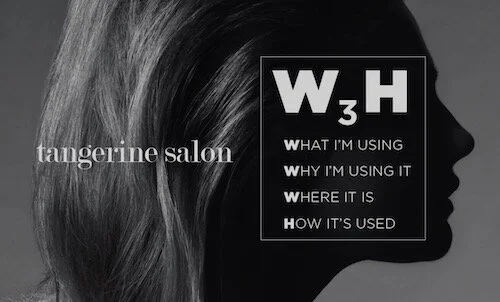The Stylist / Retail Conundrum
A challenge that every salon owner faces is making the most of their retail sales. Those that crack the code and have a vibrant retail business enjoys what that adds to the bottom line and the profits that come with it.
You’ve already invested in inventory, displays, the square footage for retail, etc. Therefore, being successful at this is not just icing on the cake, but a necessary revenue stream for sustained profits.
When there is a good retail strategy, the salon will also benefit with a more loyal clientele as they have completely bought into the whole ecosystem that you are offering. Having a thought out business plan to make sure you are not just a hair salon, but a “hair care” salon will help create a culture of success.
“The largest hill to climb with this business plan is that the sales force are not sales people.
The largest hill to climb with this business plan is that the sales force are not sales people. They are hairdressers. This means the hairdresser may be the only touchpoint you have between your clients and your product line. So how do you connect the dots?
A majority of salons pay a retail commission that hopefully motivates the stylist to “sell”. I’m going to make an argument that this does nothing to increase sales and only robs from your bottom line
At the end of the day, those that sell, sell. Those that don’t, don’t. Even if you offer them a piece of the profit through retail commission, that will still be true. If you were to conduct an experiment and take the hairdresser who sells the least amount of retail and give them 100% commission, within a week, they will return to the back of the line when it comes to results.
This is due to personality types and the fear of rejection. Those that can sell, sell. Those that can’t, can’t, and they will or won’t whether there is financial gain or not. You have to change the entire strategy and the way of thinking.
“It’s the term, “sell” that’s the problem. It creates conflict for your team. It creates unnecessary pressure and focuses on money rather than solving clients problems.
In our multi-location company, we don’t offer retail commission and we sell close to $1,800,000 in retail every year. We even tell our hairdressers that we never want them to sell anything, ever.
It’s the term, “sell” that’s the problem. It creates conflict for your team. It creates unnecessary pressure and focuses on money rather than solving clients problems. A simple shift in terminologies, culture and strategy is all that is needed to turn your team into “problem solvers” rather than unqualified sales people.
That’s why we train that educating the guest of the products they are using throughout the service is not just part of the job, but it’s a disservice to them if you don’t. It’s part of our service wheel, it’s part of our culture that the team is proud of.
The goal is to never sell. Instead, educate. We educate guests which of our products will solve their problems. And when a guest is informed on what will solve their problem, they buy it.
While we don’t believe in retail commission, we do believe in rewarding a job well done. We implemented a program that rewards through a point system for every unit of product the team member’s guests purchase. They then can redeem for rewards including cruises, shears and other styling tools, bucket list education events like NYFW and Aveda Congress, etc.
This controls our costs as well as we formulate the rewards to a particular percentage of sales, which is about 4%. This is much more sustainable than offering 10% or more on every item that is picked up off a shelf. Keep in mind that your margins on your retail are actually much lower than meets the eye. From the cost of the good sold, to the square footage of your retail area, inventory and other related costs, you need to keep as much of the profit as possible.
HOW DO WE COACH?
It took a bit to get a grasp on the best way to coach this culture, but think we have it down pat now. We use a saying called “W3H” which stands for “What you are using, Why you are using it, How to use it, and Where it is”. This gives team members a simple formula that is easy to remember and makes perfect sense.
We never look at the amount of sales a team member is responsible for, but how many of their guests are also retail guests. You would be surprised at how motivating this is for hairdressers.
We give them a pie chart that outlines how many guests they served and then how many of those guests are also Aveda clients. They really take it personal and strive to convert more guests into being a part of our entire ecosystem through W3H and “every guest, every time”.
We also engrain our team into the Aveda culture which gives us another layer of our foundation. The environmental aspect of Aveda is one that our team and guests not only get behind, but evangelize. It’s more than just a problem solver for our guests, but it’s also helping impact the world for good, and our team is a big part of that.


